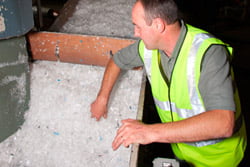Important Facts of Plastic Recycling
Plastics have additional strength, structural designs, and excellent recycling features. There are plastics that are recyclable. Scrap or waste plastics can be reprocessed or recycled into useful products such as bags, microwave dinnerware, chairs,milk bottles, tables, decorations, furniture, medical equipments and other variety of objects. Plastics may be categorized according to their resin identification code in which polymers are being identified. Each have uniform identification of codes which depends upon polymer types, recyclers could easily classify plastics according to their resin types. Plastic recycling have different ways and different uses.

The code provides plastic recycling to be economically feasible. Nowadays, plastics are being recycled not only for business purposes but also for environmental issues. The more plastics you recycled, the more money you saved, and at the same time, the more you contribute to make the environment clean and healthy. Compared to wood, paper, cardboard, glass and metal, plastic recycling are somewhat complex since it requires extensive processes because of the intermolecular forces of attraction between polymer chains.
One way for effective and efficient plastic recycling is through the use of dyes and fillers that are commonly utilized in beverage bottles and plastic bags, thus recycling is much easier and most preferable in this way. Plastics have strong construction and long-lasting characteristics to which production of new, reusable products will result to provide less permanent and durable products than the original.
Many Plastic producers are researching for biodegradable plastics while others are thinking that most plastics would contribute as waste materials and consequently will create a bad impact to our environment. But they don’t realize that plastics can be recycled for human needs, thus helpful in preserving the Mother Earth. Collecting products, e.g. plastic bottles, out of our garbage cans and even in our landfills, and identifying their polymer types, are best practices for effective recycling. From time to time, plastic recycling become a source of income without causing damage to the environment.
